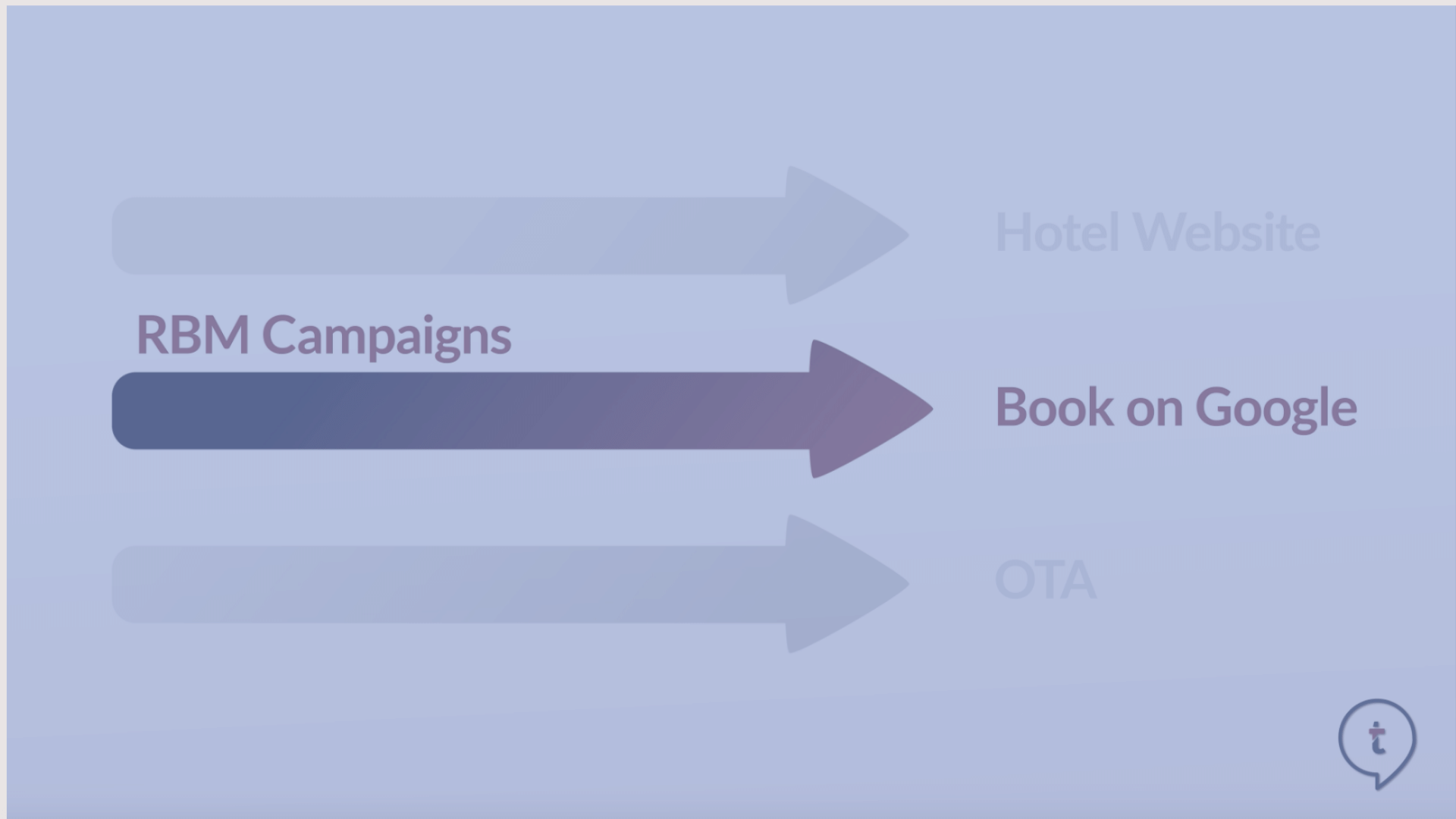The Pivot: A Human-First Value Strategy
Author: Kristie Goshow, Chief Marketing Officer at Preferred Hotels & Resorts
Looking beyond our industry to cross-pollinate ideas, business practices and operations, is critical to re-architecture and successful change management. Back in 2008, I was fascinated by the changes in revenue strategies employed by the telecoms industry, namely unbundling traditional offerings and then empowering the consumer to re-bundle meaningfully. In other words, they realized that each consumer placed value on their services in a different way and that by breaking down their traditional bundles, they could actually drive incremental revenue through a modular approach with happier customers in the process. Sounds like a logical plan to me. In my mind, this was an essential step in redefining their approach to demand generation.
At that time I saw an obvious correlation between where hospitality was as an industry and where we needed to be in the future. Getting to the re-imagined state was however dependent upon a couple of essential precursors; an acceptance by hoteliers that the change is much needed with the courage to “let go”, and the technology and functionality to support the process. And of course, delivering on both at the right time.
Over the past 10 years, we have witnessed a wholesale embrace of the unbundling approach undertaken by airlines. First it was paying for the checked bags we previously enjoyed for free, then it was inflight catering, seat choice, boarding priority and blankets – to name but a few. At first, this appeared to be “an economy strategy” but as the years have progressed and the consumer has accepted the new pricing – value quotient, no cabin is an exception. It is possible to buy a business class fare that does not include lounge access or seat choice, albeit both are available at a premium (check out the latest approach by Emirates). And most recently, we have observed further refinement to this strategy, with the introduction of a “basic economy” that quite frankly removes all passenger rights other than that of sitting in a seat you are given with space for your hand luggage under the seat in front only. On some airlines, the hat-rack (overhead bins) is a benefit reserved for regular economy ticket holders. If you want any choice, you must buy up. While I do not necessarily like it, I must admit that it is a clever approach. Some may argue it is not consumer-centric but if you are a consumer that does not value even having the option to buy a seat and you prefer to travel light, then this may be a good “choice”. So, where does hospitality, or should I say luxury hospitality, fit into this picture?
What we are ultimately talking about here is not the act of generating luxury demand in the traditional sense but rather flipping the concept and asking “what does demand look like through the customer lens?” I’m pretty confident that the answer will be value. If we revisit the world through the eyes of the consumer – adopting a human-first (imagine that) value strategy, then we should be selling the way people want to buy rather than building our demand strategies around channels and over-indexing on those channels that we deem most economical for our benefit.
I have no doubt that many long serving members of the luxury hospitality community would be horrified by the idea of unbundling or deconstructing their services and transforming to a new modular approach. At first glance, one might consider this an oxymoron of sorts – counter to the concept of luxury. But let’s pause for a moment and think about how the term luxury is being redefined by the new generations of traveler. For some, it is product amenities, so the robes and slippers may matter. For another it may be convenience, choice and simplicity, or possibly the curation of unique experiences and personal discovery. In short, as individuals (and humans), we inherently calculate value differently.
Today we serve up a room(s) type or a suite(s) type regardless of who the buyer is. Both you and I may visit the same website and choose to buy the same deluxe king bedroom. We both get a near identical product experience – the same four colored walls, three piece bathroom, king bed, coffee machine, bathrobe, slippers, bath towels, turn-down service, wardrobe hangars, amenities, water, scales, TV etc. But, as a luxury customer, I want my stay the Kristie way. If I don’t ever switch the TV on or use the slippers or the robe, should I pay for them? I might however be encouraged by the option to buy a deluxe king bedroom “base model” and then add-on a butler service (a service typically reserved for higher room categories and often included in their price).
Could then a luxury experience be the process of selecting the aspects of a product or service that we want, need and value, similar to that of shopping for your “base car model”, married with attribute (or activity based) marketing that we will now call your ‘value strategy’? When thinking through how consumers search, this would potentially play an important role in optimizing the consumer search experience and your respective digital investments.
Recent developments in distribution technology and artificial intelligence now provide the opportunity to define a value strategy built around infinite SKUs (attributes) that will grow with real time behavioral analysis. Such developments will undoubtedly send Directors of Revenue and Commercial Leaders into a dizzy dance. They’ve been waiting patiently for a long time.
The second aspect of a human-first, value strategy is questioning our business models. Pricing based on consumption is increasingly popular; that is hotels charging for the time that their guest consumes a room rather than for a traditional 24 hour unit that starts at a static check-in time (defined by the hotel) and a static check-out time (again, defined by the hotel). This idea is not new of course. Many hotel brands have played around with the concept of allocating a bedroom based on 24hrs from the time a guest actually checks-in, but if I only use my room for 8 hours, should I pay the same as someone who uses it for 21 or 24? After all, I am not using the same degree of utilities.
There is of course a minimum cost to turn the room, whether 8hrs or 21hrs of use. This is not the customer’s problem and it never should be. But what might a value model look like through the customer lens? Let’s revisit the base car model idea and now combine that thinking with a car lease business model. If, as a consumer, I know that I only need a “base model” room for 10hrs, and I have the option to enter my check-in time (lease model), rounded up to the nearest hour, and my departure time, followed by an option to add on my nespresso coffee machine for the morning, extra bottles of water, and a grab and go breakfast ready for my speedy exit, we might find that the revenue picture is looking pretty good. Moreover, our ability to turn the room and sell again is improved, and our guest walks away feeling they have enjoyed value for their “chosen investment.” From a reward and recognition standpoint, this “choice” service could be reserved exclusively for your most loyal customers.
Taking this discussion a step further, what if we cross-pollinate the subscription model into a hospitality operation? I use the term “operation” because I contend that we can successfully apply a version to meetings, rooms, and F&B. I am sure we are all guilty of subscribing to a service we hardly use and then leaving it to hit our credit cards each month only to say “I really must cancel that subscription.” Yes, that’s me – guilty as charged. If certain travelers know they only need accommodation or meeting space or F&B for a specified timeframe on a somewhat regular basis, then a subscription model may well be a fresh and practical alternative. Obviously “value” analysis will play an important role so that you do not cannibalize future revenue. If our meetings and events team are already under pressure from the competitive offerings of newer companies like WeWork in the day meetings arena, why can’t the hotel industry look at retailing their boardrooms and day meeting spaces in the same way? Monthly subscription allowing a certain number of hours of use per month (subject to availability)?
In summary, change is never easy but it is often necessary. Our customers will adapt if they feel that the purpose of the change is in their best interests. So what might your human-first value-strategy look like? Are you ready to sell the way customers want to buy and transition from a brand.com obsession (a veiled D.I.Y. channel where the customer does all the work) that clearly hasn’t made a significant impact on the traditional demand-side challenges of rising costs of sale for many hoteliers, to a C.I.C. obsession (customer in control) where the customer has a choice, regardless of how they choose to engage and transact? Whether you agree or not, there’s an exciting future in hospitality.
About the Author
Kristie Goshow, Chief Marketing Officer at Preferred Hotels & Resorts

-
Kristie Goshow brings 20 years of sales, marketing, and distribution across multiple travel disciplines to her position as Chief Marketing Officer of Preferred Hotels & Resorts. In this role, she leads the company’s global marketing strategy, responsible for driving revenue, brand awareness, and engagement through the I Prefer Hotel Rewards program, all brand and cooperative marketing efforts, and e-commerce and digital marketing initiatives.
Over the course of her career, Kristie has led teams across the airline, hospitality, and travel technology spaces with a strong focus on increasing convergence among sales, marketing, revenue, and e-commerce to ensure that efforts resonate with consumers and drive engagement and bookings. She started her career in the travel industry working with Scandinavian Airlines and Virgin Atlantic and from there, transitioned to Utell / Pegasus, where she implemented one of the industry’s first affiliate marketing programs and oversaw account management for Utell in UK, Ireland, and Scandinavia. In the early 2000s, she pivoted into the lodging side of the travel industry to oversee distribution and e-commerce efforts for hotel brands including Le Meridien, based in London, and Jumeirah, working out of Dubai. Most recently, following a two-year period as Vice President of Marketing for Sabre Hospitality, she worked with Viceroy Hotel Group as Senior Vice President of Commercial from 2013 to January 2018, responsible for managing the company’s international sales, marketing, digital, distribution, loyalty, public relations, and technology strategies.
Kristie is a published author and lends her expertise to multiple travel organizations, serving as a member of the HTNG Board of Governors, an Advisor to the Board of suiteness.com, and a member of the Sabre Hospitality Customer Advisory Board. Kristie is based in LA County, California, with her husband and two children.
Connect with Kristie Goshow on Linkedin.
Also, find these complementary content pieces on Demand Generation, discussing the concept of ABS and its implications




 Free download
Free download

![V03: The History of Hotel & Travel Technology | [Updated] Infographic](https://techtalk.travel/storage/app/uploads/public/63f/e6f/ec8/63fe6fec80447817849943.jpg)



Create an account to access the content.
Get access to Articles, Video's, Podcasts, Think Tanks, Infographics and more.
Click “Sign In” to accept our
Terms of Service Privacy Policy